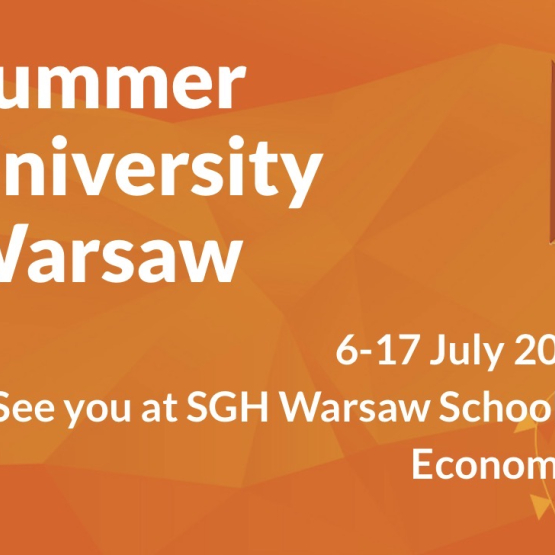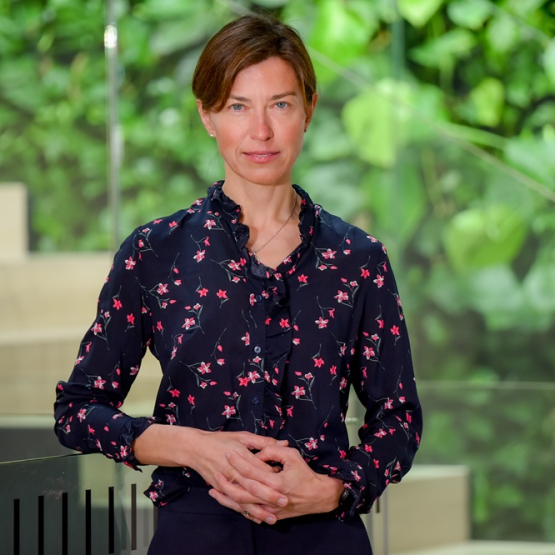
SGH has been involved in supporting Ukrainians fleeing the war, including students and academics. Our university has recently been involved in the establishment of the SGH Centre for Ukrainian Studies, headed by the eminent scientist Professor Tomasz Szapiro. Below is an interview with the Professor.
Ewelina Kędzior: After a period intensive activity in bodies representing the academia before the state authorities, you are launching a proprietary project.
Tomasz Szapiro: Yes, this is a result of my experience. In the Main Council of Science and Higher Education, and in the National Science Centre I chaired commissions dealing with international cooperation. During the recent term in the Conference of Rectors of Academic Schools in Poland (KRASP) I participated in the works of a similar commission and chaired the Crisis Team, which has been working with the commission since the war in Ukraine began. The two-year period of intensive activity convinced me that it is necessary and reasonable to establish in SGH a Centre that would be able to make scientific analyses of relations between our countries and their conditions. I can see that here and now our university needs, and will also need in the future, a team capable of creating analytically reasonable recommendations for cooperation aimed at the economy, science, and social issues.
Why the Ukrainian Studies Centre? So far, for three decades you have been connected to Canadian universities through intensive cooperation, which is now successfully continued by your alumni.
Whatever happens in Ukraine, this country is and will remain our neighbour. The size of the tragedy in Ukraine makes us responsible for being humane. The direct neighbourhood adds the concerns about our own safety. We fulfilled this responsibility in an exceptional manner. Our difficult past did not interfere. Now, as time passes by, we must think about the future. A new responsibility emerges - responsibility for reasonable building of the future. We need reasonable strategies of cooperation. And concerns about safety reposition the priorities.
These are observations about multiple institutions. What is the role of universities, particularly SGH?
The young generation, with its education, scientific development, lack of prejudices, ability to create social capital, will have enormous role in shaping the future. The responsibility lies with universities in both countries, and it poses a stimulus to develop academic cooperation. Education based on science is the foundation of preparation of leaders capable of running projects at each level of reconstruction of free Ukraine in collaboration with partners having necessary know-how. It is also a foundation for creating friendly and solidary neighbourhood. All this is contained in the mission of SGH.
How will the Centre operate?
The Centre has actually operated pro bono since March 2023. With Professor Yevheniia Polishchuk, who is currently on a Fulbright scholarship at MIT, we have made a comparative analysis of science and higher education systems in Poland and Ukraine. The text was published in a volume about social, economic, and geopolitical effects of the war in Ukraine, edited by Professor Dorota Niedziółka and Professor Mariusz Próchniak. As part of the Ukrainian Academic Diaspora, Professor Viktoriia Hurochkina and Professor Viktoriia Yanovska organised adaptation workshops for Ukrainian scientists, in which I also participated. I also held an open cycle of online lectures on management for one of the Ukrainian universities, which was a special experience for me. These promising initiatives proved to be rational, and showed that stronger organisational infrastructure is needed. We have also begun substantive scientific cooperation.
What is the cooperation about?
Currently Professor Hurochkina works on identifying barriers in economically rational use of human capital of refugees, and Professor Yanovska is analysing strategies of bilateral international cooperation and the role of third parties. Both research directions have an obvious practical dimension. Professor Polishchuk, due to her responsibility on the Fulbright scholarship, is in continuous contact with us, as an external partner. The researchers bring valuable context insight about functioning of the Ukrainian universities, obtaining data, identifying system discrepancies. They also are in live contact with Ukrainian universities, Ukrainian representation bodies, and their colleagues, graduate, and doctoral students in their home country.
So the rector’s project has become an organisational form for your activities.
Yes, in November 2023 His Magnificence Professor Piotr Wachowiak immediately accepted and supported my proposal, in December the relevant regulation was issued, and currently we are closing all the administrative matters, enjoying favour and support at every stage. The Centre is starting with two part-time employees with Ukrainian titles of professor, and is planning organic development based on Ukrainian refugees that are high-class specialists with organisational experience and extensive connections in Poland, Ukraine and beyond. Thus, we have created a bridgehead a small unit subordinate to the SGH Rector, dealing with scientific research and creating education offer, as well as obtaining financing for these tasks. These goals support activities of numerous SGH employees already working on the Ukrainian problems, without colliding with or duplicating them.
How do the knowledge and experience of Professor Hurochkina, Professor Polishchuk, and Professor Yanovska correspond to the goals and priorities of SGH Ukrainian Studies Centre? What are the concrete benefits of such specialisation in terms of developing academic cooperation and supporting reconstruction of and cooperation with Ukraine?
All these three professors had been in charge of academic teams before the war, had gained international experience in cooperation with scientists from other countries, which I had learnt about while working on different subjects. Beside this potential, they have an excellent knowledge of the Ukrainian conditions - not only the culture and the language, but also institutional mechanisms or organisation of scientific projects. The Professors parallelly continue online classes with graduate and doctoral students, and they present at conferences their papers. For us they are not only ambassadors of their universities, but also sources of expertise, which will be very useful in research and in developing academic relations.
What are the advantages of developing international cooperation through SGH Ukrainian Studies Centre both for the university and broader academic community?
Today internationalisation is an instrument of research work. Science continuously expands its scope of research. Economists can understand increasingly complex pieces of economic reality. To this end, resources have to be combined, growing funds must be obtained. It is easier to do it in collaboration. Research directions have to be selected carefully, based on diligent and critical analysis, which in turn is better and more effective in an international environment. I am a supporter of a thesis, unpopular nowadays, that in science you should begin from understanding. So I mostly focus on overcoming barriers in understanding complexity. One of such barriers is diversity of ethnic, institutional, scientific, or professional cultures. We aspire to overcome these barriers in cooperation between Polish and Ukrainian scientists, and thereby arrive at interesting outcomes and recommendations.
What are your further plans?
This month we had three presentations at a conference on international university cooperation. The presentations dealt with the strategies of scientific cooperation, including e.g. the case of Poland, Ukraine, and Japan, whose research systems and academic environments are highly differentiated. My further plans cover more academic publications, education programmes, project applications, establishing contacts with similar national entities and foreign institutions. In even longer perspective I plan to open a fully-fledged organisational unit in our university. Considering signals I have received so far about the integration of Ukraine with the European Union, I am a cautious optimist. An optimist, because many entities are interested in rebuilding Ukraine, and our institutions, enterprises and universities have an opportunity to play a significant role. A cautious one, because it will take a lot of time. True, it takes time to prepare reasonably, but it is still a risky time. Generally, from the university’s point of view, the Centre will aim to balance its costs with obtained funds, and also to improve the potential for international academic and business cooperation.
Considering the role of students as future leaders and creators of social capital, are you planning any specific initiatives of SGH to involve students in developing academic cooperation and shaping friendly, solidary neighbourhood?
Initiatives of the SGH Warsaw School of Economics are in the hands and heads of its authority. I am responsible only for the Centre’s initiatives. Obviously, we are willing to cooperate with students from Poland, Ukraine, and other countries. I already told you about my view on the role of understanding processes in any development, so we would prefer to begin such cooperation differently than typical certified classes - the university has an excellent offer, and better is the enemy of good. Therefore, our activities will focus on including students in research and organising less formalised meetings connected with the Centre’s mission I mentioned.
I started our conversation from your role in the project. Let me also close it with a similar, yet seemingly banal question: apart from managing what is your role in the project? Are you planning to do any research?
First, I co-work with my Ukrainian colleagues. Each of us writes their own article and simultaneously a second text in cooperation with another person. Second, my personal interests are partly connected to my previous academic time, which, apparently, I cannot reject entirely. Recently I have observed numerous examples of superficial activities of different size, but always in the theatrical style ridiculed by Młynarski in his song People will buy it [Ludzie to kupią]. International work is not free from flashiness. That is why recently I have been particularly interested in hard indicators of effectiveness of international activities. What’s more, the effect of academic activity evaluation on careers has been a hot topic in Europe, which is reflected by documents and measures of EUA (European University Association), CoARA (Coalition for Advancing Research Assessment) and Magna Carta. Already in my habilitation I discussed multi-criteria optimisation, I also promoted doctors in this field, in KRASP I chaired Commission for Accreditation and Rankings, and currently in EUA, I am in a working team of representatives of international rector conferences handling these issues. No wonder that effectiveness measurement and monitoring keeps me awake at night. And for Ukraine this is a key issue for obtaining funds and correct development.
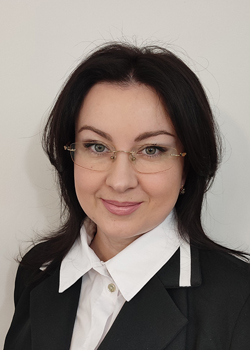
Viktoriia Hurochkina
is a Professor, Dr. of Science in Economics (Entrepreneurship and Economic Security) at State Tax University, Ukraine. President of the Foundation “Ukrainian Scientific Diaspora in Poland” (2023), Warsaw, Poland. Assistant Professor, University of Zielona Góra, Poland. Guest Researcher, Polish Academy of Sciences and Austrian Academy of Sciences (2022).
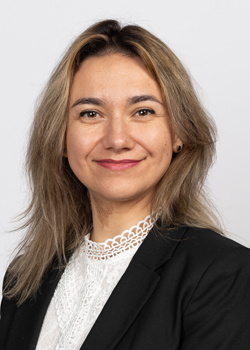
Yevheniia Polishchuk
is a Professor, Dr. of Science in Economics (Finance), affiliated at Kyiv National Economic University, Ukraine; Fulbright visiting scholar at MIT, ex-Deputy on international affairs of the Head of the Young Scientists Council at the Ministry of Education and Science in Ukraine; co-founder of the Ukrainian Science Diaspora.
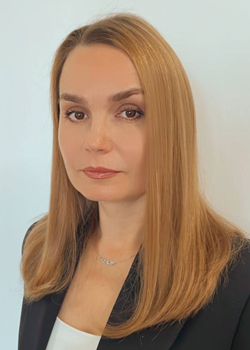
Viktoriia Yanovska
is a Professor, Dr. of Science in Economics (Transport Economics and Sustainable Development) at State University of Infrastructure and Technology, Kyiv, Ukraine. Full member of the Transport Academy of Ukraine. Vice President, Foundation “Ukrainian Scientific Diaspora in Poland” (2023), Warsaw, Poland. Guest Researcher, Polish Academy of Sciences (2022).
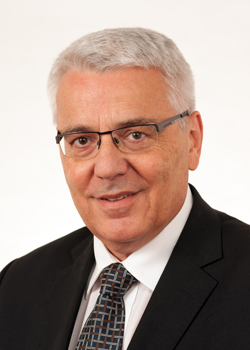
Tomasz Szapiro
is the Head of Center for Ukrainian Studies at SGH. MSc in Physics, PhD in Mathematics, habilitation, and full professor title in Economy. Rector of the SGH Warsaw School of Economics between 2012 and 2016. Adjunct Professor at Carlson School of Business at University of Minnesota. Currently Head of Anti-crisis Committee in the Conference of Rectors of Academic Schools in Poland. Former member of Council of National Science Center, and the National Council for Science and Higher Education. He also gained business experience in the Supervisory Boards of ING Bank Śląski, and Aviva Investors Poland (Head of Audit and Risk Committee).
EWELINA KĘDZIOR, collaborator of the Press Unit, SGH Rector’s Office

